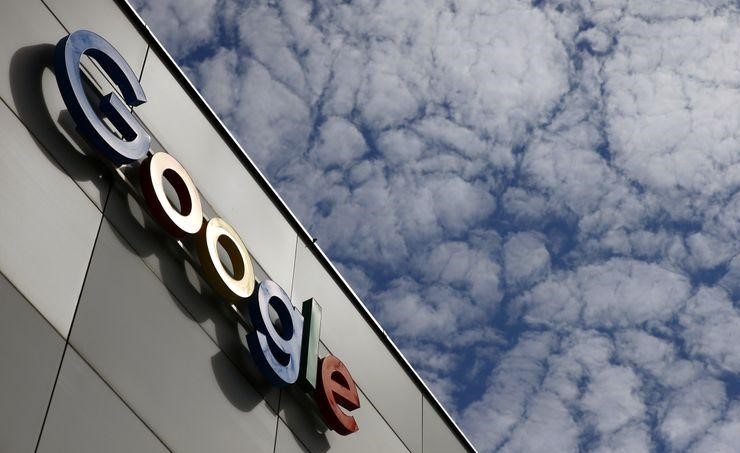
The Alphabet Workers Union is not seeking better pay and benefits. It wants to influence the company’s policies on social and other issues.
On January 4, a group of workers at Google parent company Alphabet said they had formed a union to influence the company’s approach to political and social issues. Three days later, the Alphabet Workers Union got its first chance.
A crowd incited by President Donald Trump had stormed the Capitol in Washington, DC, sparking recriminations in the capital and in the atomised home offices that now make up Silicon Valley. YouTube had deleted a video the president posted amid the violence the previous day.
But unlike Facebook, Twitter, Snapchat and Amazon-owned Twitch, YouTube did not suspend Trump’s account.
The Alphabet Workers Union said YouTube’s response was “lacklustre” and inadequate. In a statement, the group said Google was not enforcing its own policies, while the platform was being used to “spread hatred and extremism.”
“YouTube will continue to function as a vector for the growth of fascist movements if it persists in prioritising advertisers while exposing the public,” AWU wrote. Google did not respond to requests for comment, but told Fortune that the president’s account had not violated its three-strikes policy.
The AWU is somewhat unusual in that it is affiliated with the Communications Workers of America but won’t seek recognition or collective bargaining rights through the National Labour Relations Board.
“We will use our reclaimed power to control what we work on and how it is used,” AWU writes in its mission statement. “We will ensure Alphabet acts ethically and in the best interests of society and the environment.”
The group says it now has more than 700 dues-paying members. But that’s still a tiny percentage of Alphabet’s 130,000 employees – and an even smaller share of the company’s total workforce, including temporary workers, contractors, and vendors. The union is unusual in another respect, because it welcomes contractors and temporary workers.
Labour experts say this untraditional arrangement could chart a way forward for organizers in tech companies, which – like lots of white-collar workplaces – have proven hostile to organizing.
Today, organisers are likely to have difficulty drumming up enthusiasm for a union among Google employees, many of whom like their jobs and are well compensated, says Janice Fine, a professor at Rutgers University and the research and strategy director of its Centre for Innovation in Worker Organisation.
“These workers aren’t going to get the majority of workers on their side, but they’re trying to figure out how you protect the minority who are willing to speak and create an organization that can push Google,” she says.
“Minority,” “solidarity” or “open” unions like Alphabet’s exist outside some protections of federal labour law. AWU cannot collectively bargain with Alphabet, which may limit its influence with the company.
But any group of more than two employees organising together is legally protected from retaliation. The model might be a particularly good fit for sprawling multinational tech giants, whose workers have many varied roles.
“This model opens up a lot of possibilities, and it creates a dynamic where workers can leverage their power through an organisation,” says Wes McEnany, the East Coast lead for CWA’s Campaign to Organise Digital Employees.
He says that since the organisation launched last week, the union has heard from employees at other tech companies interested in organising their own solidarity groups.
“This model opens up a lot of possibilities, and it creates a dynamic where workers can leverage their power through an organisation.”
Fine says workers have been looking for novel ways to organise for three decades, as court rulings and state laws made the country less hospitable to traditional unions. Just 10.3 per cent of US salaried workers were members of unions in 2019 compared with 20.1 per cent of salaried workers in 1983, the first year for which comparable data is available. “
Alt-labour” organisations like non-profit worker centres have cropped up to provide legal advice and other forms of support to workers. The Fight for $15 movement has since 2012 organised fast-food workers across the country to strike for higher wages, notching wins in places such as New York, California, Florida, and Seattle.
More recently, gig workers for companies such as Uber, Instacart and DoorDash have organised in support of legislation to make them employees instead of contractors, without the imprimatur of official recognition.
CWA has experience organising public employees in states such as Texas, where collective bargaining by government workers isn’t protected by law.
Tech workers are different from low-wage fast-food workers organising for higher pay. The median Alphabet employee earned $258,708 in 2019, according to financial filings. Organisers want to support temporary and contract workers, but recognise that fighting for higher wages is not a top issue for most Alphabet workers.
Instead, the drive to unionize was born out of four years of upheaval at the company. It began in 2018, with employee opposition to a US government contract to use AI to improve drone strike targeting and a 20,000-employee walkout in response to multimillion-dollar settlements with executives accused of sexual misconduct.
Since then, Google employees involved with organising say they have been retaliated against. And late last year, the alleged firing of AI researcher Timnit Gebru triggered another wave of discontent within Alphabet, this time with the company’s approach to racism and racial disparities.
Workers at other tech companies also are trying to influence their employers following last week’s insurrection.
Over the weekend, an Amazon employee advocacy group urged the company to cut ties with Parler, a social media service popular with far-right political figures. by Saturday, Amazon Web Services said it would no longer provide services to Parler. The Washington Post reported on Friday that more than 350 employees signed a letter urging CEO Jack Dorsey and other executives to permanently ban the president from Twitter, which it did just a few hours later.
- A Wired report











